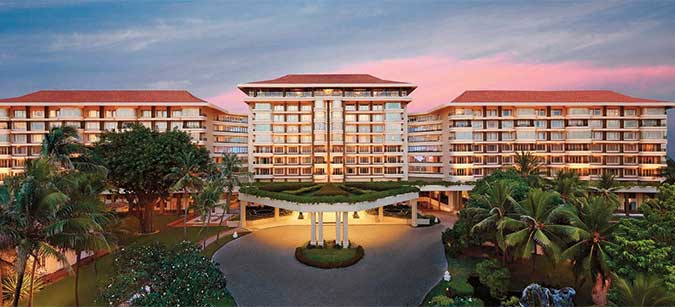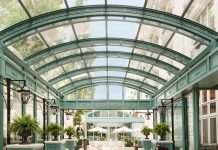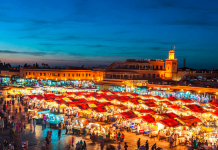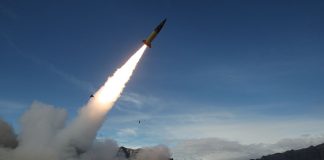Globe trotting with Le Meridien: CONFESSIONS OF A GLOBAL GYPSY
Dr. Chandana (Chandi) Jayawardena DPhil
President – Chandi J. Associates Inc. Consulting, Canada
Founder & Administrator – Global Hospitality Forum
chandij@sympatico.ca
I am most thankful to Le Meridien hotel company for the invaluable exposure they provided me over the years. Le Meridien was very generous in developing my international hotel management career. During my two stints with them in the 1980s and in the 1990s, Le Meridien invested the time and funds to send me for training in France and job experiences in their five-star hotels in different countries.
Between 1986 and 2001, I stayed at over 20 Le Meridien Hotels in a dozen countries. In addition to being a Director of Food & Beverage, and General Manager, my other brief roles in these Le Meridien sponsored travels were: shadow general manager and management observer. I was also the quality assurance ‘mystery guest,’ or simply a guest observer during corporate sales trips, general manager conferences with Le Meridien corporate teams from Paris and London, and on holiday.
SINGAPORE
Soon after my first annual performance review as the Director of Food and Beverage of Le Galadari Meridien hotel in Colombo, my boss, the General Manager of the hotel – Jean Pierre Kaspar agreed to send me to Singapore for Le Meridien exposure. I knew that he saw some potential in me as a future international hotelier, although in the mid-1980s there were hardly any non-European expatriate managers with Le Meridien. Most of them were French.
My main assignment in Singapore was to be a Management Observer at Le Meridien in fashionable Orchard Road. Having spent two weeks at the nearby Goodwood Park Hotel in 1982, as the guest executive chef for a Sri Lankan food festival, I was familiar with Singapore. In 1987, I was amazed by how much Singapore had advanced in five years. I shadowed the Director of Food & Beverage of the hotel while being a silent observer at all meetings and events he attended. I spent some time at all their restaurants and special banquets.
I also spent some time observing their sister hotel – Le Meridien Changi located very close to my favourite airport in the world – Changi Airport. It was the first occasion that I was exposed to the management of an airport hotel. Most of the guests at this hotel stayed for short periods and the service offered had to be faster than city centre five-stars. As there was not much to see around the hotel, the few guests who stayed longer than one night usually took taxis to down town Singapore.
Compared to Colombo, Singapore had a much more active and modern night club scene being around two years ahead in nightclub trends compared to us. I wanted to duplicate some ideas as I was working on upgrading certain aspects of Colombo 2000 night club. Towards the end of my assignment there I invited the lead singer and the manager of our main band, Sohan Weerasinghe, to join me in Singapore. Our wives joined us and spent most of their time shopping while Sohan and I visited many night clubs and also recruited a Singaporean female singer to perform at Colombo 2000 on a limited engagement.
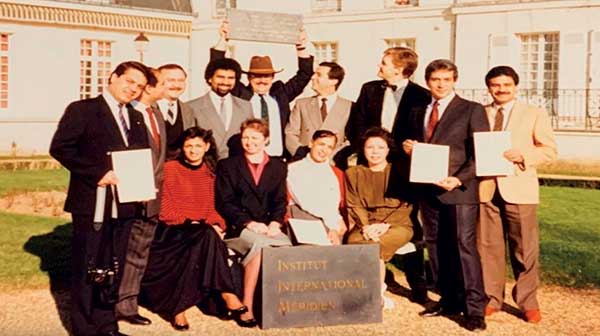
BANGKOK
Prior to my wife and I travelling to Thailand in 1988 on a vacation, I arranged our stay and a short ‘unofficial’ guest observer period at Le Meridien Bangkok. By then I had realized that a lot can be learnt by simply observing different hotel operations, although many hoteliers did not do so. I was familiar with Bangkok. In 1979, Bangkok was the first city outside Sri Lanka that I visited, when I stayed at the then famous Hotel Narai. In 1993, through a personal contact, I arranged another guest observer period for myself at the Bangkok Hilton.
After spending time at the Grand Palace and visiting the Floating Markets by boat, our tour guide had arranged an after dinner ‘Bangkok by Night’ tour for us. “I will meet you at the hotel lobby in two hours. I will take you to a unique restaurant for dinner, before the ‘night’ tour,” he promised to keep us excited. We found Thai people to be very friendly and respectful. The only things we did not like about Bangkok were the traffic and the humidity. After a refreshing shower we were ready for our adventure evening in Bangkok.
During a 45-minute car ride, our guide, Narong was proud to talk about the restaurant to which he was taking us for dinner. “Tum Nak Thai is the largest restaurant in the world. It is in an eight-acre park just outside Bangkok. It is owned by a cousin of our king. You will love the food, service, entertainment and everything else! They serve 6,000 dinners every day!” he boasted. Narong was telling us the truth.
Sitting there and looking around the beautifully landscaped and well-lit gardens of Tum Nak Thai, I understood how they handled such a large operation. They basically had six identical restaurants and six satellite kitchens led by six managers, but with the same menu. What baffled me was how they were able to market the complex so successfully to ensure a full-house for every meal.
The tropical trees, flowers, water ponds and lighting in the gardens all enhanced the ambiance. Apart from the musicians and dancers we were well entertained also by the servers/runners. They moved at lightning speed while balancing heavy trays of food and beverage. They were on roller blades and used exclusive wooden corridors, making exciting sounds, as they acrobatically moved to our amazement.
PARIS
“Congratulations, Chandi! Le Meridien head office in Paris and the regional office for Asia in Singapore have approved my recommendation to send you to Institut International Meridien in France”, Mr. Jean Pierre Kaspar happily announced. It was soon after he had finished my second annual performance appraisal.
I knew that Le Meridien chose a dozen divisional heads from their hotels around the world for an advanced program at Le Institut, twice a year. It was called: ‘Séminaire de Meridien Management’. I also knew that chosen managers had the potential for promotion as General Managers in time to come. I was proud to be the first from Sri Lanka to be sent for that special hotel management, education program.
However, there was one thing that I did not know at that time: that Mr. Kaspar had spent something more than my total annual salary at Le Galadari Meridien, to educate me on the Le Meridien management concept in Paris and in Tours, where the main campus was located. After France, he had arranged for me to spend some time in London at Le Meridien Piccadilly, as a management observer. He did this by contacting a friend of his from France, who managed that hotel.
I arrived in Paris in the autumn of 1988, with great optimism. The 12 delegates were accommodated at the 1,000-room Le Meridien Montparnasse in
Air France established Le Meridien Hotels in 1972. The chain’s hotels initially offered accommodation mainly for Air France flight crews and passengers in their major airport hub cities around the world. The first Le Meridien property was a 1,000-room hotel in the heart of Paris, the Hotel Meridien Paris, today known as Le Méridien Etoile. Our welcome sessions with the President and senior Vice Presidents of the company were held at Le Méridien Etoile.
Born in Paris during an era of glamorous travel, Le Méridien Hotels & Resorts always celebrated cultures around the world through the distinctly European spirit of savouring the good life. Le Méridien’s engaging mid-century designed spaces coupled with chic signature programs putting a playful twist on art, coffee, sparkling cocktails, summer, family, and inspire creative-minded travellers to explore the world in style. I was happy to immerse myself in that unique hospitality culture.
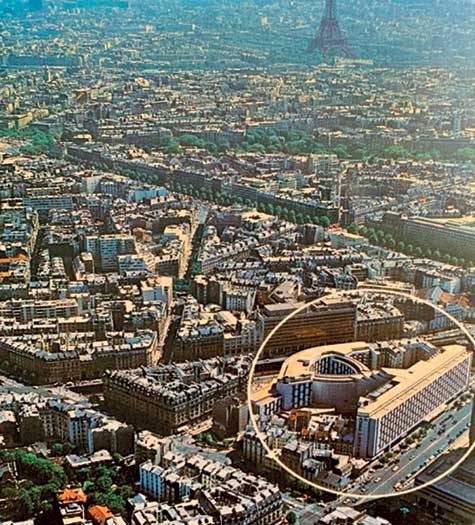 LE MERIDIEN INSTITUT IN TOURS
LE MERIDIEN INSTITUT IN TOURS
After a couple of days in Paris we were taken by train to Tours. The beautiful colours of the falling leaves made that two-hour ride very pleasant. During the training program, we all lived at Le Meridien Tours which was a smaller regional hotel. We all became good friends and kept in touch for years after our training. As a university town, Tours was a good location for our management studies.
Once a Gallic-Roman settlement, Tours possesses one of the largest amphitheatres of the Roman Empire, the Tours Amphitheatre. Tours is also a traditional gateway for exploring the chateaux of the Loire Valley region. Major landmarks include the Cathédrale Saint-Gatien, whose flamboyant Gothic facade is flanked by towers with 12th-century bases and Renaissance tops. In 1988, the population of Tours was around 130,000.
I simply loved that program at Le Institut. It did not cover much about hotel operations, but the professors covered in depth, hotel finance, hospitality marketing, psychology and organizational behaviour. Our French professors were knowledgeable, friendly and one of them also liked to join us in pranks.
We enhanced our knowledge of French cuisine, wines, cheeses, service and culture during our daily, extra-curricular activities. Every evening we visited a different winery and a different gourmet French restaurant. Every weekend we did tourist things — going on tours and visiting chateaux. While gaining valuable knowledge, we also gained too many calories! When my wife saw me in London, after my training in France, she was surprised. “Chandi, you have put on at least ten pounds during your time in France!” she said.
LONDON
When I arrived at Le Meriden Piccadilly in London I was warmly welcomed by the General Manager — Michel Novatin. He then entrusted the hotel’s Director of Food and Beverage — Olivier Louis — to look after me and fully expose me to his division. “I have heard great things about you from my boss — Jean Pierre Kaspar,” I said to Olivier. His response was, “Ah, I am a fan of Jean Pierre! I worked under him in my hometown – Paris — when I commenced my career as an apprentice in a pastry kitchen. He was the Food & Beverage Manager and he promoted me to the Food and Beverage Controller.”
Olivier then invited me to attend a celebration: “Come with me to a very special event with all the managers in my division,” he said. Like many five-star London hotels in the 1980s, their food and beverage operation maintained very high standards and proudly ran an operation which added value and prestige to the overall hotel product. However, the profits were in rooms. Le Meriden Piccadilly Hotel’s fine-dining French Restaurant ‘Oak Room’ had earned a Michelin star, an honour unique to a hotel restaurant at that time.
The managers were celebrating making 1% departmental profits in the Food and Beverage division, for the first time. Having done in-depth research on the Food and Beverage operations of all 16 five-star London hotels in 1984 for my master’s degree dissertation at the University of Surrey, I was not surprised by their low level of profits.
After sharing some champagne with me, the Executive Chef, Maître d’hôtel/Restaurant Managers, Olivier asked: “How about your Food and Beverage operation in Sri Lanka? In the midst of a civil war, do you make any departmental profits at all?” When I said, ‘Yes”, he was surprised, and was quick to ask me: “What percentage?”
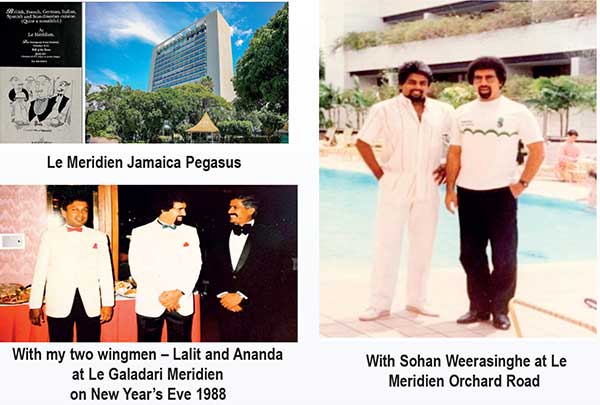
When I said “30%”, there was pin-drop silence. The next day after having checked the group statistics, Olivier congratulated me. “Chandi, in your absence from Colombo, your team has made a record 31% Food and Beverage departmental profits for the past month!” Then he shook my hand and said, “I think that instead of you shadowing me, I should shadow you, to learn from you about making good profits!” We both laughed.
Olivier Louis was friendly, hard-working, smart and ambitious. I knew at once that he would do very well as an international hotelier. In 1996, after a 24-year career with Le Meridien in several hotels around the globe as the General Manager, Olivier left the company after it was sold by Air France to the largest British hotel company – Forte PLC. He then settled in Dubai, UAE, working for Kerzener International Limited – a leading international developer and operator of destination resorts, ultra-luxury hotels and residences and innovative entertainment and gaming experiences.
Today, Olivier is the Managing Director of two ultra-luxury iconic resorts owned by the royal family of UAE – One&Only Royal Mirage and The Palm. In 2016, he won the prestigious ‘Best Hotelier’ award at the 17th Worldwide Hospitality Awards event. I gained a lot by spending time with this legendary hotelier, during his mid-career, in 1988.
BACK IN COLOMBO
I was happy to be back in Colombo. I was also eager to share all that I had learned at the Institut International Meridien, as well as at the four Le Meriden hotels in France and England, with members of my team. Soon after my return we were busy with Christmas and New Year’s Eve events. I delivered a series of seminars based on my new learning after the festive season in early 1989.
Prior to my departure to Europe, Mr. Kaspar asked me to be ready for a promotional transfer to a Le Meridien hotel in another country as an expatriate Director of Food and Beverage, within a year. After two years of not filling this post, we decided to fill the vacancy of my deputy with a succession plan. I asked: “What type of person do you want me to hire?” Mr. Kaspar said: “I want someone just like Chandi!”
Before my trip to France, I recommended someone who was much better than me – Lalit De Silva — as my deputy. Lalit was three years older than I and a year senior to me at Ceylon Hotel School. Unlike me, he had won many academic, excellence awards including a two-year scholarship to West Germany.
Lalit was equally fluent in French and German, and spent most of his career specializing in Food and Beverage operations. At Le Galadari Meridien, Lalit understudied me, with the understanding that he would succeed me within a year. He was supported by our Banquet Manager – Ananda Warakawa.
MORE ADVENTURES WITH LE MERIDIEN
In 1994, as part of a cost-cutting measure, Air France sold its controlling interest in Meridien Hotels Inc., to the UK-based Forte PLC (my employer at that time). The French government wishing to keep Le Meridien French-owned, favoured a bid by Accor Hotels. However, with some support from the European Union, Forte was eventually successful in taking over Le Meridien. Having realized that Le Meridien maintained very high standards, Forte upgraded a selected few Forte Grand hotels and re-branded those as Le Meridien.
After Air France, the ownership of Le Meridien moved hands to five different companies – Forte in UK in 1994, Granada in UK (after a hostile takeover) in 1996, Nomura in Japan in 2001, Starwood in USA in 2005, and Marriott in USA in 2016. All five owners of Le Meridien in the post Air France era from 1994 to 2023, maintained the unique French style of Le Meridien.
In 1997, I was appointed as the General Manager of Le Meridien Jamaica Pegasus, the largest business hotel and the premier five-star hotel in the Jamaican capital city – Kingston. This hotel was previously a Forte Grand hotel and I led the re-branding to Le Meridien. In that process, the training I received at Institut International Meridien in 1988 became a great asset. For the next four years I stayed at many Le Meridien hotels for different purposes.
Prior to re-opening Jamaica Pegasus as Le Meridien, I took most members of my management team to Le Meridien New Orleans, USA, for a week. There, each of us shadowed our counterparts. After working very hard during the re-branding period, I spent a memorable, one-week holiday with my elder son, Marlon, at Le Meridien Guadalupe in the French West Indies. That hotel was a charming resort and was very different from all other Le Meridien hotels that I had experienced.
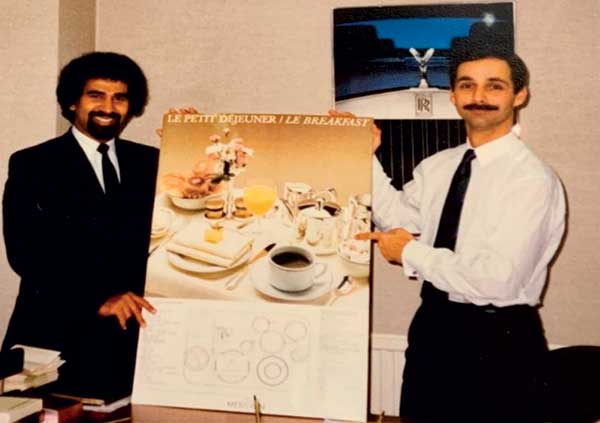
In 1998, when Marlon and I went to Japan in search of our martial art connections (Marlon earned his Karate black belt when he was 15), we stayed at Le Meridien Tokyo, which was the most expensive Le Meridien I experienced. I stayed at the Famous Le Royal Meridien King Edward Hotel in Toronto, Canada, a couple of times, attending general manager’s regional meetings and shadowing the General Manager. I was identified to become the General Manager of that great hotel in 1999, but to my chagrin, that did not materialize.
As an occasional visitor to corporate office in London, I continued to stay at a few Le Meridien Hotels there – Piccadilly, Westbury, Waldorf, Heathrow and Gatwick. During corporate sales trips to USA, I loved staying at Watergate Le Meridien in Washington D.C. and Le Parker Meridien in New York.
In October 1998, Le Meridien considered me as the hotel opening General Manager for Kathmandu, Nepal. When that project was delayed, Le Meridien was surprised when I requested two years of sabbatical leave to complete my doctoral studies. After some negotiation, they approved the leave with one condition – I have to accept any post they would offer me after the two years.
During that two-year period, Le Meridien continued with complimentary accommodation for me at Le Meridien Hotels when I travelled to attend academic conferences etc. in Georgetown (Guyana), London, Dubai and Toronto. In return, my wife (who was also a hotelier for some time) and I did comprehensive quality assurance mystery shopper assignments for my general manager colleagues of Le Meridien hotels in Dubai and Toronto.
After my two-year sabbatical leave, Le Meridien offered me a choice of two excellent posts – General Manager of a 750-room Le Meridien Hotel by the Red Sea, Egypt, or Regional Training Director for South Asia. By then I had decided to continue in academia, and settle with my family in Canada. Therefore, I did not accept either of the offers. I reluctantly left my favourite international hotel company. After 23 years, I remain friends with a few of my former Le Meridien colleagues.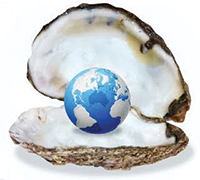
In a world of standard operational international hotels, with its unique style and class, Le Meridien holds a special place in the world of hospitality and hoteliering. Given the generous support in my career development, Le Meridien also holds a very special place in my heart. Merci beaucoup, Le Méridien, and Monsieur Jean Pierre Kaspar!

